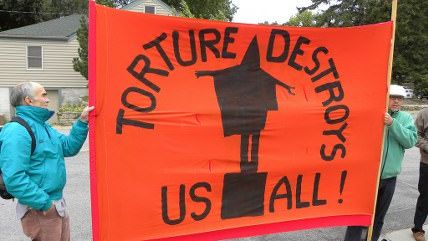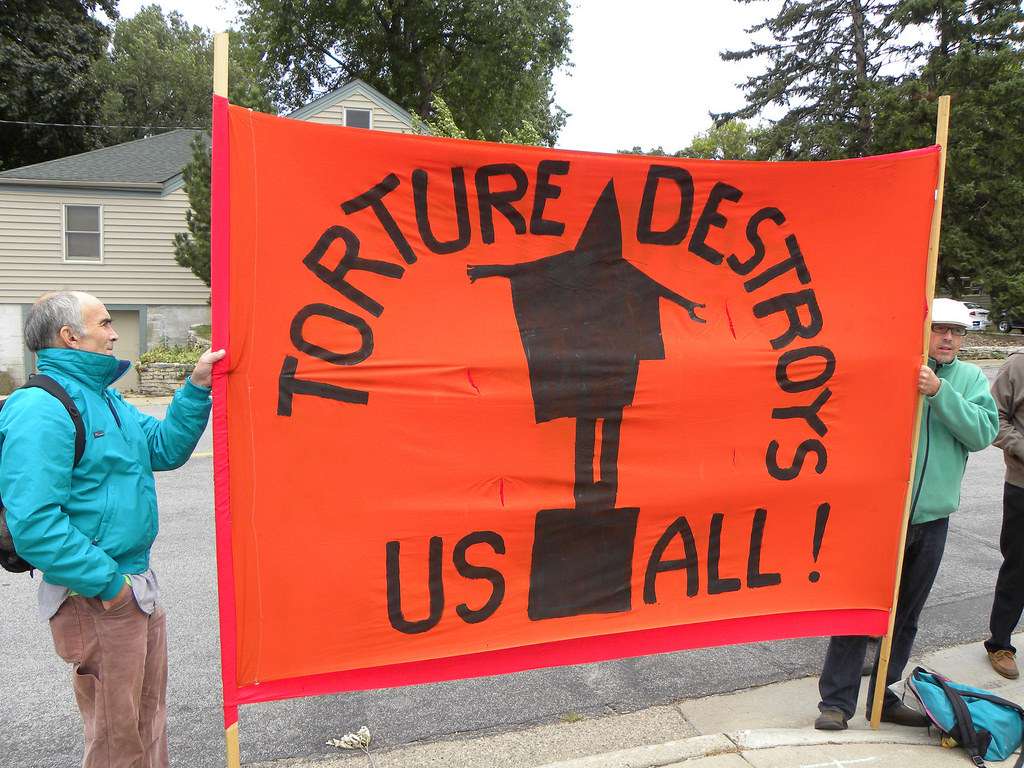White House Wants to Redact the Hell Out of Torture Report. Will a Leaker Save Us?


The most transparent administration ever has managed to infuriate the left's top national security state defender, Sen. Dianne Feinstein (D-Calif.), even further. The CIA already drew her ire in a way even libertarians can appreciate (and yet still laugh at) when they snooped on staffers from the Senate Intelligence Committee as they put together a massive report analyzing the CIA's use of torture under President George W. Bush. The CIA ended up apologizing to her, and now there are calls to dump CIA Director John Brennan after he initially scoffed at Feinstein's complaints.
Now, as the government considers unclassified just a small portion of the full torture report, the 480 page "executive summary," she's battling the White House and the CIA again over how much of the report they want to take a black pen to. As a result, we probably won't be seeing the report anytime soon. Officials defending the move say they've only redacted 15 percent of the content. But that 15 percent matters. From The Washington Post:
U.S. officials familiar with the redacted document said the administration stripped out material that showed that pieces of information long attributed to detainees — and that led to the disruption of terrorism plots or the capture of additional suspects — had actually come from other intelligence sources such as intercepted communications.
"The redactions obscure or prevent the report from sharing other forms of information that contributed to counterterrorism successes," said a U.S. official involved in discussions over the document.
The committee used CIA-provided pseudonyms to protect the identities of agency personnel, but the agency removed references to those false identities. The CIA also objected to other details that it said could enable readers to identify its officers as well as countries that cooperated in the detention program.
An official familiar with the redactions said the amount of detail associated with the pseudonyms could jeopardize CIA officers' safety. "A pseudonym itself is little protection from exposure when a host of other information about that officer is made available to the public and will likely be seen by adversaries and foreign intelligence services," the official said.
Maybe we'll just have to wait for another whistleblower to leak an unredacted copy to find out what's really happening. We've drawn attention to a couple of big scoops over at The Intercept about the contents of the federal government's terrorist watch list guidelines. The information did not originate from Edward Snowden, and now the feds have realized they may have another leaker on their hands. CNN notes:
The article cites documents prepared by the National Counterterrorism Center dated August 2013, which is after Snowden left the United States to avoid criminal charges.
[Glenn] Greenwald has suggested there was another leaker. In July, he said on Twitter "it seems clear at this point" that there was another.
Government officials have been investigating to find out that identity.
No doubt, they intend to thank him for all his or her good work at making sure America remains a free and open country.


Show Comments (27)